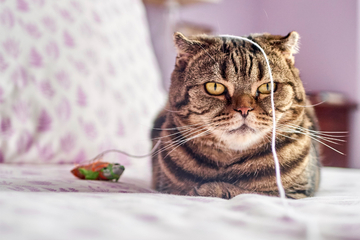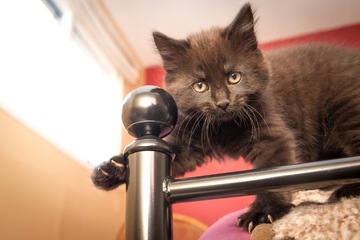Why is my cat sneezing?
There are few things cuter than a sneezing cat, but if it happens too often, it's not something to be sneezed at! While there's usually nothing to worry about, not every reason behind a feline sneeze is innocuous.
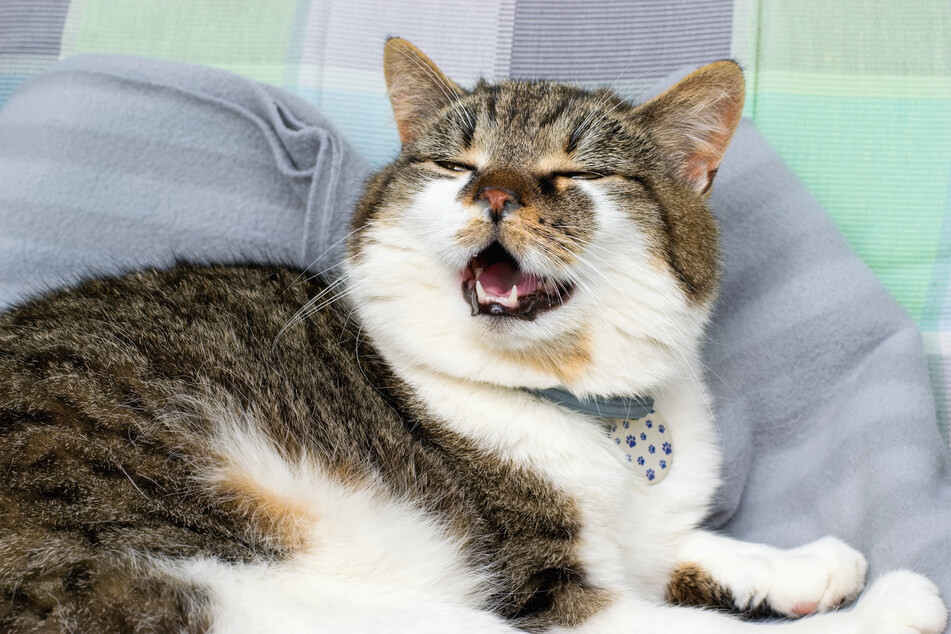
Like pretty much every animal out there – including us – cats will let out a good sneeze every once in a while.
The internet is awash with hilariously adorable clips of our feline friends being taken by surprise by their own sneeze.
But as with humans, sneezing isn't always a laughing matter.
So why is my cat sneezing and could it be because of a cold? Can cats get allergies, what other issues can cause a cat to sneeze, and what treatments are useful?
Let's take a look.
Why does my cat keep sneezing?
There are a variety of reasons which may explain why a cat would repeatedly sneeze, some more serious than others. Cat sneezing can be both the sign of something completely innocuous like dust in the air or allergies, or a sign of something more serious and unpleasant, such as an illness.
These are the most common causes of sneezing in cats:
- Nose tickles
- Inflammation of the nose
- Foreign objects
- Dust
- Allergies
- Bad smell
- Infections
- Cat colds and flu
Important: While most issues that cause cat sneezing are fairly unimportant, it is worth paying attention to anything that is perhaps causing inflammation or infection. In such cases, it's time for medical advice.
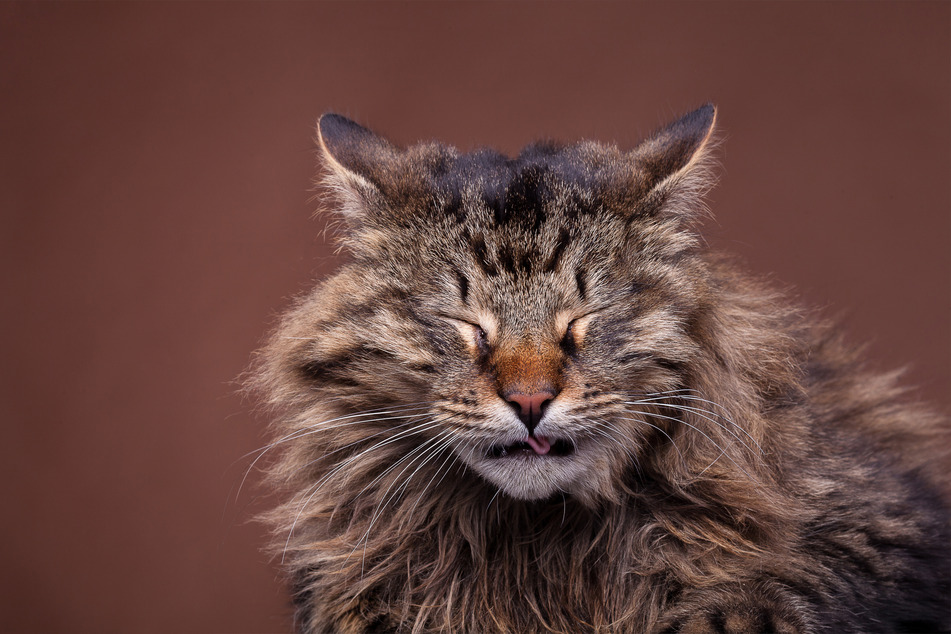
Can cats get colds?
While not the same as the human cold, cats can get both upper and lower respiratory infections, as well as certain types of influenza. They're generally quite rare and often pretty harmless, but cat colds can cause a lot of distress in our fluffy little friends. Smiling through the sneezing, these cute little dudes don't know what is going on and really don't want to deal with it.
The most common symptoms of cat colds are:
- Sneezing
- Runny nose
- Loss of appetite
- Drooling
- Dripping eyes
- Coughing
- Lethargy
Most of the time, a cat cold is not a problem that needs much attention, but if you have noticed that the symptoms have lasted for a long time, you need to go and get medical attention.
Do cats get allergies?
Yes, cats can have allergies too, and many of them share common symptoms with human allergies. As a result, it is very possible that your cat's sneezing is due to some kind of mild allergic reaction. Many of these issues are hard to avoid (for example, dust allergies), but others will be linked with pre-existing treatments like flea allergies, even if they may exhibit harsher symptoms.
There are four main types of cat allergy:
- Food allergies: An allergy to a particular food. This is more serious and means that you should get its allergies checked at the vet, but is often less likely to cause sneezing.
- Insects: Often related to fleas, this is generally a specific allergic reaction caused by the bite or touch of some kind of insect or parasite. It causes sneezing sometimes, depending on the variety.
- Atopic dermatitis: This is the most common cause of sneezing, and is also what many humans have. It's an allergic reaction to dust, pollen, or mold.
- Contact: Any allergy that is triggered by your cat touching something. Depending on what it is, this can cause sneezing.
Be careful about allergies in cats, as like everything in this article, they can range from innocuous to lethal.
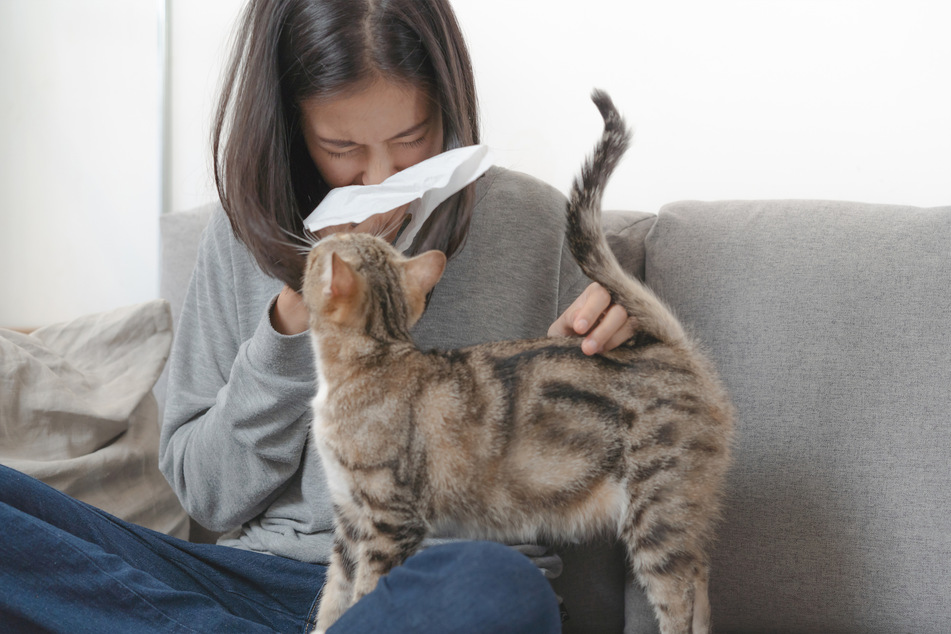
How to treat cat sneezing
Other than taking your cat to the veterinarian when you are concerned, there is no real home remedy for cat sneezing. Instead, you should simply go about your day and only act on your cat's sneezing if that action is to go to the vet. There are, however, a few minor things that you can consider.
Here are a few tips for treating cat sneezing:
- Make sure that your house is very clean and well dusted.
- Check that you have not been using any cleaning products that could be causing the issue.
- Give your cat a change of environment, in case it is something in the room or garden that's causing the sneezing attack.
- Check that the litter tray has been emptied and isn't too powdery.
- Watch for potential symptoms of illness, infection, or inflammation.
- Apply whatever prescription or treatment asked of you by the veterinarian.
- Provide lukewarm food and water.
- Get a humidifier to dampen the air.
- If there are allergies or any other issues, get medical help and make sure all vaccinations are up-to-date.
Many of these options may seem very general, as they should be. Remember, you are not a trained professional and should not be applying medical treatments. Keep your home clean and comfortable, and nothing more.
Most the time cat sneezing is nothing to worry about!
Much like in humans, sneezing is an indication that something is wrong, but not necessarily that something seriously dangerous is wrong. Of course, if your cat is showing other symptoms or has such extreme sneezing attacks that it concerns you, it's time to go and get your cat checked out by the veterinarian – but most of the time there's really nothing to worry about.
So, keep an eye on your sneezing kitty and, if things get too bad, go to the vet. Don't freak out, stay calm, and troubleshoot, but always be careful about things you don't know much about.
Cover photo: IMAGO/Pond5 Images


